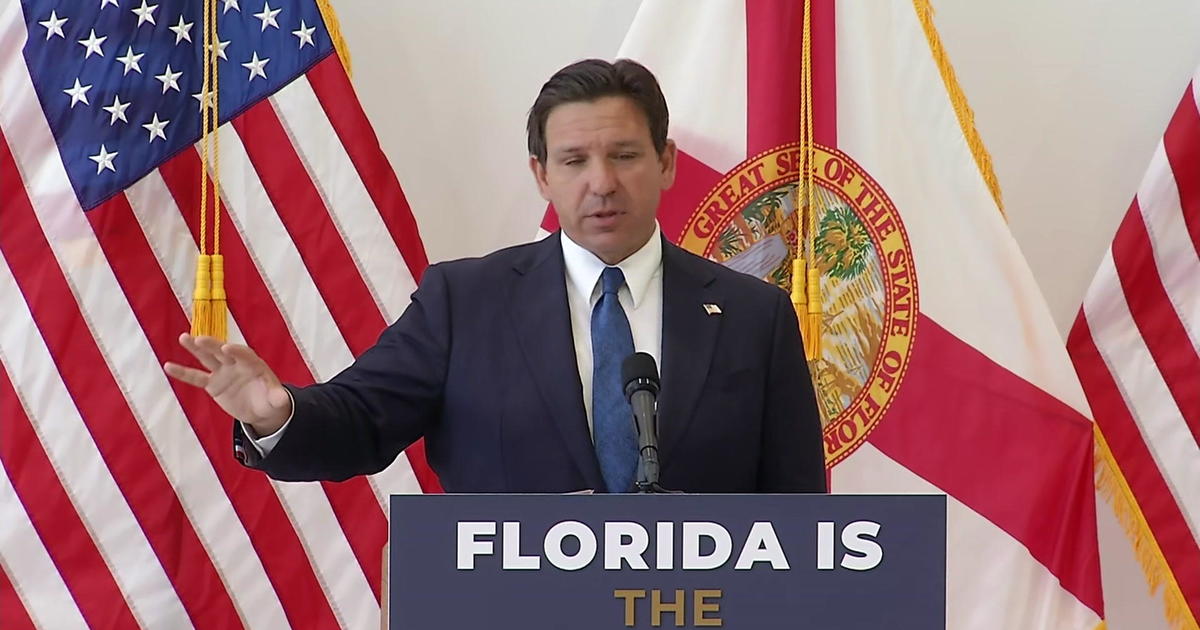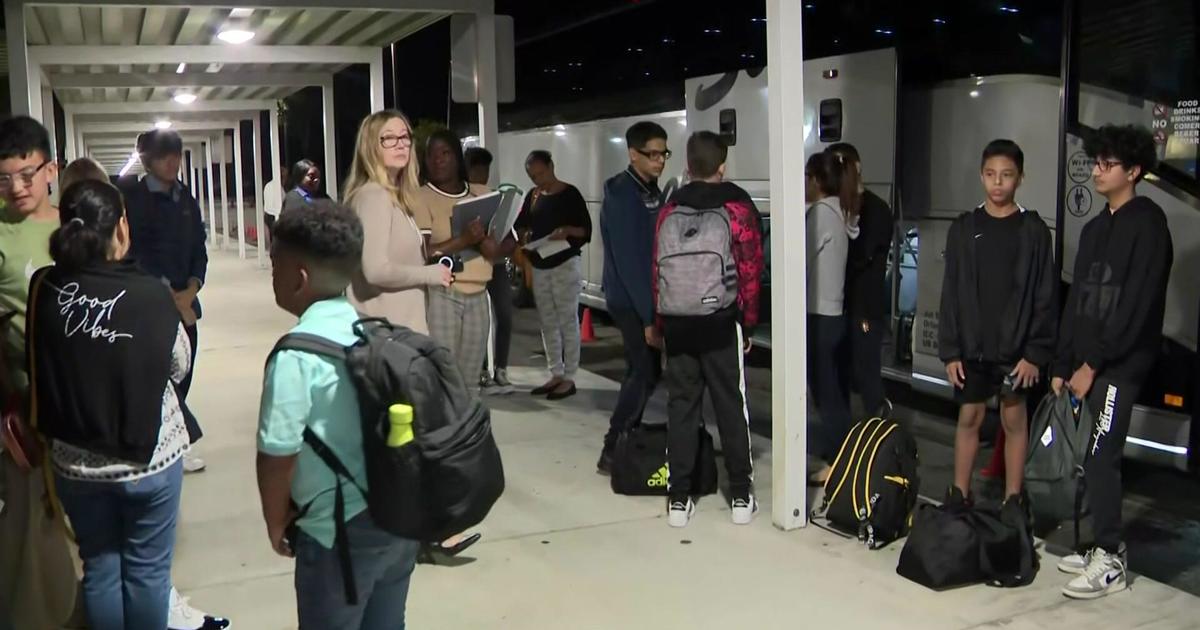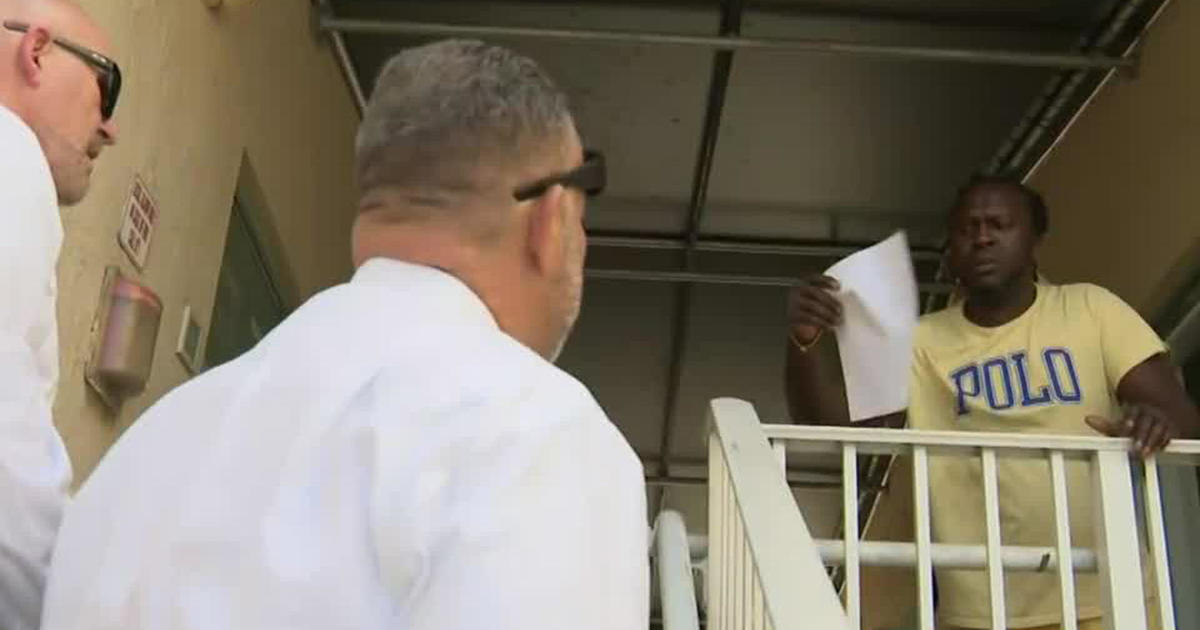Child Welfare Bills Differ, But Both Chambers Offer Ambitious Response To Deaths
TALLAHASSEE (CBSMiami/NSF) - After a series of highly publicized child deaths last year, the House and Senate are taking different approaches to fixing the state child-welfare system -- but both are considering ambitious measures that cover a lot of ground.
Both chambers would require more professionalism -- with an emphasis on social-work skills -- for child protective investigators. Both would keep siblings together in the state system and help families care for medically complex children. Both would require the Department of Children and Families to publish the basic facts of all deaths of children reported to the state abuse hotline. And both would create critical incident response teams to conduct immediate investigations of those deaths and other serious episodes of child abuse and neglect.
"These are our kids -- we have got to make sure that they are safe," said Rep. Gayle Harrell, the Stuart Republican who chairs the House Healthy Families Subcommittee. "We are not done. We are going to work at this and work at this until we get it right."
On Wednesday, Harrell led her panel through a workshop on the House's omnibus child welfare reform bill (PCB HFS 14-03). The day before, the Senate Children, Families and Elder Affairs Committee unanimously passed three bills (SB 1666, SB 1668 and SB 1670) that contain many of the same provisions.
The sweeping legislation is the result of a wave of child deaths last year that sparked outrage and contributed to the resignation of the secretary of the Department of Children and Families last July.
Since then, legislative hearings have shown that turnover at the top of the department -- which has had seven secretaries and interim secretaries since 1999 -- is contributing to a system-wide instability that lawmakers want to address.
For instance, both chambers are proposing a new position, assistant DCF secretary for child welfare, because the secretary is responsible for too many areas -- mental health, substance abuse, domestic violence, homelessness, hunger and more.
Both chambers are also proposing a consortium of state university social-work programs called the Florida Institute for Child Welfare, which would conduct research and policy analysis to advise the state and improve the education and training of the child-welfare workforce.
"It would be a brain trust," Harrell said. "Secretaries come and go -- this would be maintained."
And both chambers are proposing new education and training requirements for child protective investigators, although the Senate's are more sweeping. The Senate plan would require 80 percent of newly-hired CPIs and their supervisors to hold college degrees in social work, while helping current employees with loans and tuition waivers if they pursue such a degree.
The House bill offers CPIs and their supervisors three options: they must have a college degree in social work; a degree in a human services-related field with 12 hours of relevant coursework; or a degree in a human services-related field and agree to complete 12 hours of relevant coursework within three years.
The biggest difference between the chambers involves safety planning for children who could be in danger of maltreatment. The Senate plan doesn't change the current system, which limits DCF investigations to 60 days, within which the child protective investigator must verify the abuse.
"But what the investigator can't do is ensure that there's any kind of safety for the child after that 60-day period of time," said Howard Talenfeld, president of the advocacy group Florida's Children First. "A parent can say ... 'This was a terrible incident. I got drunk and I'm going to fix the problem.' ... That's the hole in the bill right now. Because there's no jurisdiction, you can't ensure safety no matter how good your investigators are."
Talenfeld urged the Senate panel to adopt a House provision that would not rely on promises by a parent, caregiver or legal custodian when developing a plan to ensure the child's safety as the result of an investigation.
"We want to make sure safety plans are followed," Harrell said.
So does Miami-Dade Circuit Judge Cindy Lederman, a national expert on child welfare.
"The scope of the investigations must be expanded to include family functioning and family history," Lederman said. "Without that, these children are still in danger."
But the biggest bone of contention could be lawmakers' efforts to update the statutes dealing with the state's 19 privatized community-based care lead agencies, known as CBCs. The CBCs receive $769 million a year from the state to coordinate adoption, foster care and case-management services for children who have been removed from their homes.
Both the House and the Senate are proposing an outcome-based accountability system that would "monitor the use of resources, the quality and amount of services provided, and child and family outcomes," as the House bill states.
And both chambers' proposals would strengthen local community alliances, groups of volunteers and providers that are already supposed to help govern the CBCs. If the bills pass, the community alliances would conduct a needs assessment, set community priorities and review the performances of both the lead agencies and the Department of Children and Families for the local area. The alliances could choose to look for another lead agency, or extend the current one's contract.
"It virtually guts the whole model of community-based care," said Stephen Spivey, the former dependency court judge who serves on the board of Kids Central, the CBC for Citrus, Hernando, Lake, Marion and Sumter counties.
On Wednesday, former state representative Kurt Kelly, representing the CBCs, agreed to meet with Harrell -- with whom he served in the House -- about the lead agencies' concerns. He also urged the House panel to "make sure that we're properly resourcing" them.
Kelly and others have argued that with Gov. Rick Scott proposing nearly $40 million this year for 400 additional child protective investigators, there will be a greater need for local caseworkers to make sure children get the services they need.
Lederman said caseworkers -- who are supervised and paid by the CBCs -- should have been included in the education, training and tuition waiver provisions of the bills.
"If protective investigations really are done in a competent manner, more children will be coming into care," Lederman said. "We need more and more qualified caseworkers and, right now, the workforce of qualified caseworkers has been depleted."
But Harrell said it depends on funds. "I haven't gotten any indication from (House Speaker Will Weatherford) that there's any money right now for that. But that would be something I would be very interested in looking at moving forward.
"We want to upgrade the workforce of all of our individuals who have hands-on with these children."
This report is by Margie Menzel with The News Service of Florida.



